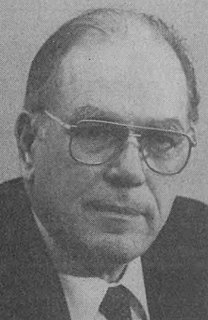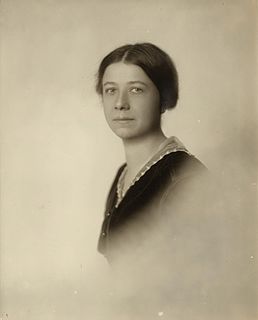A Quote by Lyndon LaRouche
We represent the only efficient moral, intellectual and political force capable of saving human civilization.
Related Quotes
In the spiritual domain, criticism is love turned sour. In a wholesome spiritual life there is no room for criticism. The critical faculty is an intellectual one, not a moral one. If criticism becomes a habit it will destroy the moral energy of the life and paralyse spiritual force. The only person who can criticise human beings is the Holy Spirit.
Science is a magnificent force, but it is not a teacher of morals. It can perfect machinery, but it adds no moral restraints to protect society from the misuse of the machine. It can also build gigantic intellectual ships, but it constructs no moral rudders for the control of storm tossed human vessel. It not only fails to supply the spiritual element needed but some of its unproven hypotheses rob the ship of its compass and thus endangers its cargo.
Decisive inventions and discoveries always are initiated by an intellectual or moral stimulus as their actual motivating force, but, usually, the final impetus to human action is given by material impulses ... merchants stood as a driving force behind the heroes of the age of discovery; this first heroic impulse to conquer the world emanated from very mortal forces
I see the liberty of the individual not only as a great moral good in itself (or, with Lord Acton, as the highest political good), but also as the necessary condition for the flowering of all the other goods that mankind cherishes: moral virtue, civilization, the arts and sciences, economic prosperity.
The notion of saving the planet has nothing to do with intellectual honesty or science. The fact is that the planet was here long before us and will be here long after us. The planet is running fine. What people are talking about is saving themselves and saving their middle-class lifestyles and saving their cash flow.
If his presidency is to represent the full power of the idea that black Americans are just like everyone else - fully human and fully capable of intellect, courage and patriotism - then Barack Obama has to be subject to the same rough and tumble of political criticism experienced by his predecessors.
There ought not be two histories, one of political and moral action and one of political and moral theorizing, because there were not two pasts, one populated only by actions, the other only by theories. Every action is the bearer and expression of more or less theory-laden beliefs and concepts; every piece of theorizing and every expression of belief is a politcal and moral action.
Political realism is aware of the moral significance of political action. It is also aware of the ineluctable tension between the moral command and the requirements of successful political action. And it is unwilling to gloss over and obliterate that tension and thus to obfuscate both the moral and the political issue by making it appear as though the stark facts of politics were morally more satisfying than they actually are, and the moral law less exacting than it actually is.






































